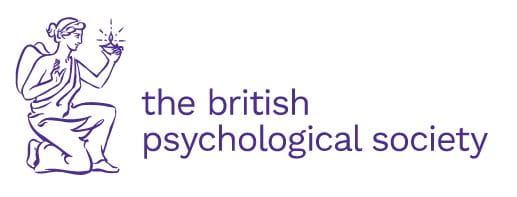About your course
Meet NICE guidelines for supporting those with depression and anxiety disorders on LJMU's Psychological Wellbeing Practitioner course, now known as Talking Therapies for Depression and Anxiety.
- Study to meet National Institute for Health and Clinical Excellence (NICE) guidelines for supporting people suffering from depression and anxiety disorders
- Follow a curriculum that combines theoretical learning and practical experience and is strongly influenced by student feedback
- Enjoy exceptional levels of learner support
- Benefit from excellent training facilities and strong links with local service providers
- For more information on this Apprenticeship route contact Karen Rea: K.Rea@ljmu.ac.uk
This course helps Primary Care Trusts to implement National Institute for Health and Clinical Excellence (NICE) guidelines for people suffering from depression and anxiety disorders. It trains Low Intensity workers to assess and support patients in the self-management of their recovery.
With common mental health problems accounting for a third of all primary care consultations in the UK, this training not only reduces the impact on individuals, families and communities but also on key resources.
The programme is built around the bio-psychosocial model of mental health and wellbeing and will provide you with the knowledge and skills to: work within primary care settings and deliver a range of low intensity, evidence-based interventions. These include: cognitive behavioural interventions; collaborative case management; social interventions (including employment and occupational) and structured pharmacological support.
Closed to applications
Course modules
What you will study on this degree
Your programme is made up of a number of core modules which are part of the course framework.
Further guidance on modules
Modules are designated core or optional in accordance with professional body requirements, as applicable, and LJMU’s Academic Framework Regulations. Whilst you are required to study core modules, optional modules provide you with an element of choice. Their availability may vary and will be subject to meeting minimum student numbers.
Where changes to modules are necessary these will be communicated as appropriate.
Core modules
Engagement and Assessment of Patients with Common Mental Health Problems
20 credits
20 credits
This module trains Psychological Well Being Practitioners (PWPs) to assess and support individuals with common mental health issues. They learn patient-cantered assessment, effective communication of mental health knowledge, and behaviour change strategies. The module also emphasizes cultural competence for working with diverse populations.
Values, Diversity and Context
20 credits
20 credits
This module prepares students to provide inclusive and value-driven mental health support, emphasizing diversity, equal opportunities, and managing patient caseloads. It also develops decision-making skills and the ability to seek supervision or referrals as needed, enabling trainee PWPs to handle a variety of patient needs beyond low-intensity interventions.
Evidence Based Low Intensity Treatments for Common Mental Health Disorders
20 credits
20 credits
This module teaches Psychological Well Being Practitioners (PWPs) to provide support for low-intensity psychological and pharmacological treatments for common mental health issues, emphasizing patient self-management and behaviour change models. Trainees develop knowledge and competence in delivering these treatments and managing patients, including families and carers. They also learn to support medication adherence through various communication methods and understand the therapeutic support process, including risk assessment and management.
Professional accreditation/links
LJMU's Improving Access to Psychological Therapies PgCert is accredited by the British Psychological Society, meeting the Psychological Wellbeing Practitioners Accreditation 2014.

Your Learning Experience
Excellent facilities and learning resources
There is one day a week timetabled study supported by an equal amount of self-guided study (a university directed learning day in service) for semester 1. For semester 2 students will alternate each week between timetabled study and university directed learning day in services.
Assessment varies depending on the modules you choose, but will usually include a combination of exams and coursework.
To pass each module you need to demonstrate that you have achieved all of its learning outcomes. Assessment methods include written critical reflection, assignments, exams, clinical simulations, presentations, practice skill assessments and the completion of workplace clinical documentation. To authenticate the full-time placement, you will submit a practice skills assessment document for approval by your Supervisor.
Where you will study
Situated in the City Campus, the School of Nursing and Allied Health works with a wide range of health and social care organisations to design, deliver and evaluate a dynamic suite of postgraduate programmes. In addition to specialist facilities, you will find high quality meeting and seminar rooms and lecture theatres, the Avril Robarts Library, plus a large café, IT facilities and social spaces.
Career paths
The engagement, assessment, decision-making and evaluation skills acquired on the programme, will allow you to work as a Mental Health Practitioner in a primary health setting. Past graduates have also gone on to work in psychological wellbeing, clinical psychology and high intensity therapy. There is also the option to undertake further study in this area.
Student Futures - Careers, Employability and Enterprise Service
A wide range of opportunities and support is available to you, within and beyond your course, to ensure our students experience a transformation in their career trajectory. Every undergraduate curriculum includes Future Focus during Level 4, an e-learning resource and workshop designed to help you to develop your talents, passion and purpose.
Every student has access to Careers Zone 24/7, LJMU's suite of online Apps, resources and jobs board via the LJMU Student Futures website.
Tuition fees and funding
The University reserves the right to increase tuition fees in accordance with any changes to the maximum allowable fees set by the UK Parliament. In the event of such a change, any fee increase will be subject to a maximum cap of 10% of the total course cost as originally stated at the time of your offer.
The fees quoted above cover registration, tuition, supervision, assessment and examinations as well as:
- library membership with access to printed, multimedia and digital resources
- access to programme-appropriate software
- library and student IT support
- free on-campus wifi via eduroam
Additional costs
Although not all of the following are compulsory/relevant, you should keep in mind the costs of:
- accommodation and living expenditure
- books (should you wish to have your own copies)
- printing, photocopying and stationery
- PC/laptop (should you prefer to purchase your own for independent study and online learning activities)
- mobile phone/tablet (to access online services)
- field trips (travel and activity costs)
- placements (travel expenses and living costs)
- student visas (international students only)
- study abroad opportunities (travel costs, accommodation, visas and immunisations)
- academic conferences (travel costs)
- professional-body membership
- graduation (gown hire etc)
Funding
There are many ways to fund study for home and international students. From loans to International Scholarships and subject-specific funding, you'll find all of the information you need on our specialist funding pages.
Entry requirements
Please choose your qualifications below to view requirements
Grades/points required from qualifications:
Work out how many UCAS points your qualifications are worth by visiting the UCAS Tariff Calculator.
Qualification requirements
Alternative qualifications considered
Core requirements: Academic criteria: 120 credits at academic level 4 and 5, preferably in a health related subject or equivalent. Demonstration of ability to study at degree Level* To be determined at pre-course interview: Motivation, interest and determination to participate in a programme of this nature. That the candidate has the learning capability, study opportunity and commitment to embark on the programme. Clinical Practice criteria: Step 2 primary care mental health service structure is in place to ensure that trainees are able to demonstrate programme learning. Sufficient trained supervisors in place to provide appropriate supervision. Full support of the Service Manager to provide agreed protected time (one day study, one day supervised clinical practice) per week. The student will have access in services to recording equipment. * In various circumstances candidates without the required credits may be considered for entry. In this situation the candidate must demonstrate by use of a portfolio that they have appropriate skills for successful level 6 study. As part of this process they may be expected to complete a written assignment to determine their academic ability. This assignment may be used 'diagnostically' by the selection team. RPL/RPEL will be considered in accordance with LJMU regulations. Applicants must be employed and the funding is paid by the employer
Please Note: All international qualifications are subject to a qualification equivalency check.
How to apply
Securing your place at LJMU
To apply for this programme, you are required to complete an LJMU Degree Apprenticeship form. You will need to provide details of previous qualifications and a personal statement outlining why you wish to study this programme.
External applications are made through NHS jobs direct in response to recruitment drives. The selection and recruitment process is jointly undertaken by both the service and LJMU Talking Therapies teaching team.
Your university life
From accommodation and academic support to clubs and societies. Find out what LJMU has to offer.
Talk to our students
Connect with a current LJMU student for advice and guidance on university life, courses and more.
See what our students are saying
At LJMU we want you to know you're making the right choice by studying with us. You can see what our students are saying about their experience with us through their reviews on the following websites:
Related Links
News and views
Browse through the latest news and stories from the university







The university reserves the right to withdraw or make alterations to a course and facilities if necessary; this may be because such changes are deemed to be beneficial to students, are minor in nature and unlikely to impact negatively upon students or become necessary due to circumstances beyond the control of the university. Where this does happen, the university operates a policy of consultation, advice and support to all enrolled students affected by the proposed change to their course or module.
Further information on the terms and conditions of any offer made, our admissions policy and the complaints and appeals process.




